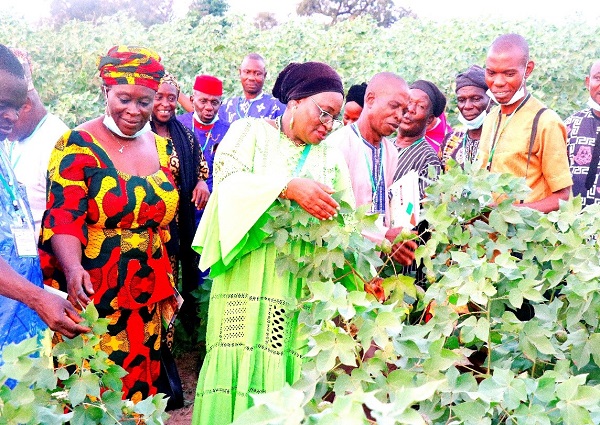
The bio-economic activities being recorded by some African countries should have positive, evident effects on their economies if it must come to anything, the director-general, National Biotechnology Development Agency (NABDA), Prof. Abdullahi Mustapha has said.
Mustapha made the statement at the 10th annual international conference and exhibition for the Society for the Conservation of Phytofuel and Allied Sciences (SCOPAS) held at the Faculty of Agricultural Science, University of Abuja.
Mustapha, said that while African countries like Nigeria, Ghana, Uganda etc do have some bio-economy development activities based on various crops and oil plants, there is no evidence of any significant or positive impact on their economies.
Mustapha, who was represented at the conference by the Open Forum on Agricultural Biotechnology (OFAB) Nigeria country coordinator and deputy director, NABDA, Dr. Rose Gidado, maintained that the science of genetic modification is central to achieving a bioeconomy.
However, while making the presentation titled: ‘Biodiversity Conservation and Management for a Sustainable Phytofuel Bioeconomy in Nigeria,’ Gidado said that biotechnology is one of the tools that can be used to conserve biodiversity. This can, in turn, mitigate the effects of climate change and minimise losses.
Gidado explained that bioeconomy involves the use of modern biotechnology and biomass in the production of goods, services and energy. Already, an increasing number of countries, about 50, proposed reinforcing and strengthening their economies with bio-based products, he stated.
Speaking on the theme of the conference, ‘Sustainable Phyto-economy in COVID-19 Era: Panacea to Global Economic Growth and Development,’ the executive secretary, Tertiary Education Trust Fund (TETFund), Prof. Elias Bogoro called for diversification of the economy, considering the available resources in the country. He said research and innovation are key elements that could transform any society and, thus, it is more expedient to carry out scientific research now than ever before.
Elias added that the integration of biotechnology tools has the potential to revolutionise Africa’s Green Energy pursuit and pledged TETFund’s readiness to fund research that’s targeted at brightening the nation’s chances and giving hope.
In his remarks, the national president, SCOPAS, Prof. Moshood Belewu, said achieving green and low carbon development is realisable only by establishing an economic system that will be self-sustainable.
SCOPAS was established in 2013 to represent the interest of Phytofuel scientists, farmers and allied science professionals in both public and private sectors.
Other participants at the conference included the former governor of Adamawa State and chairman of the occasion, Vice Admiral Murtala Nyako (rtd.); Chairman, FCT Council of Traditional Rulers and the Onah of Abaji, HRM Alhaji Adamu Baba Yunusa, the Royal Father of the Day; Executive Secretary, TETFund, Prof. Elias Bogoro; Vice Chancellor, University of Abuja, Prof. Abdulrasheed Na´Allah; Director-general, Raw Materials Research and Development Council (RMRDC), Prof. Hussaini Ibrahim; Director-general, Energy Commission of Nigeria (ECN), Prof. Eli Bala; Executive director, Agricultural and Rural Management Training Institute (ARMTI), Dr. Olufemi Oladunni; and a dean and senior lecturer at Baze University, Prof. Taofeek Sumonu, amongst others.

